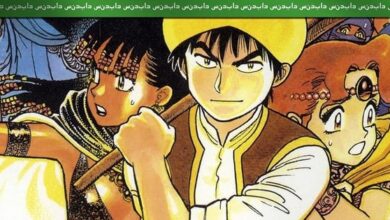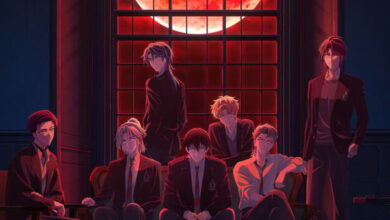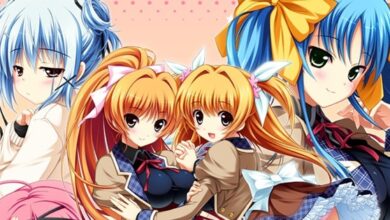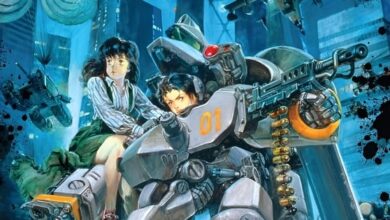Conventions and Nostalgia – Answerman
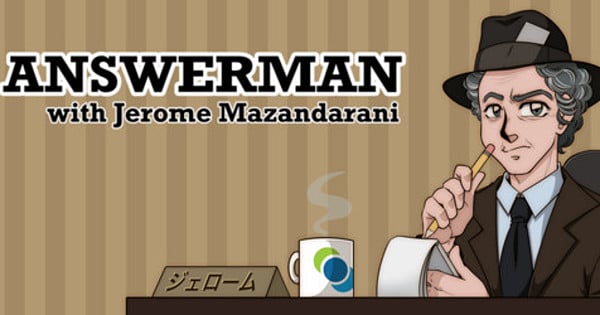
A reader asked:
Q: “I have been a long-time fan of attending American anime conventions and enjoy participating in professional and fan-driven panels. As I have gotten older, I have noticed an unusual trend of fan panels taking up a large portion of the content, especially at small to mid-sized events. These panels discuss various aspects of anime fandom in the late 1990s and 2000s, when the first “anime boom” occurred. Don’t get me wrong, I have fond memories of it. far wave, Fanimason, ADV, DBZas well as other popular brands of the time. There are some panelists who really try to find unique elements of fandom at these small events. People seem to have a weird obsession with shows and movies from over 20 years ago, whereas something more recent might be popular for a year and then disappear. I’ve seen few panels receive the same enthusiasm as the 2010s. Is paneling an old-fan thing? ”
For old fans, is paneling a thing? This is a great question, and one I often think of as an “anime industry veteran” who loves writing and talking about the anime business. From a purely personal and professional perspective, I wanted to know what events and audiences might be interested in spending an hour with me discussing some of my favorite topics, movies, and TV series. I’m a Generation Robotics Corporation is a comparison Macross,” or “Everything looks better in 90s anime, and that’s why. “These are provocative, enjoyable debates that many salty, older anime fans will enjoy, while our younger compatriots will wonder what the hell we’re arguing about.
It’s equally important to me to be relevant to all anime fans, not just the older generation. So I really put a lot of thought into creating content that is relevant, fun, and engaging for young anime fans. Not surprisingly, this is also a consideration for programmers at small, medium, and large fan conventions. The number one goal for any conference organizer is to deliver a safe, well-run and fun event that provides good value for money to attendees and hopefully ensures that many of them return for the next conference.
To get to the heart of the matter, yes, millennial nostalgia for the “anime boom” period of the late 1990s to early 2000s drives a lot of the panels at most small and medium-sized anime conventions in the United States today. A quick look at the 2025 plans for some mid-sized conferences reveals dedicated panels for annual conferences franchise favorite, e.g. Digimon, Yu-Gi-Oh!, dragon ball, Gundamand Pokemon. However, it’s hard to argue that these brands are not relevant to the Gen Z audience or even the older generations within Generation Alpha. Almost all these brands have new products franchise Iterations are currently being released, along with new TCGs and toys/collectibles. To me it just emphasizes the importance franchise Management of childhood.
Millennials and older Gen Z consumers made up the majority of conference attendees, so it makes sense that “nostalgia” is a key component of the pull factor in their spending decisions. This group also makes up the largest portion of contemporary animation audiences. They are the ones who pay the price Crunchy roll and Netflix Subscribe to pay for repeat visits to your local multiplex demon slayer: Infinite Castleand provide impetus for the reversal of fortunes in the global toy industry.
I find it remarkable, considering how young the always-on anime fans seem to be, that the majority of attendees at North American Anime Conventions are Millennials and above. Then again, attending anime conventions is an expensive event. Travel, hotel accommodation, and money are needed. This is before you add the cost of creating your own role playand grab tons of officially licensed merchandise and goodies. Millennials can afford to attend more anime conventions each year than younger teens and college-age fans.
Much has been written about why people have a specific and deep nostalgia for the characters, stories, games, and toys of the 1990s and early 2000s. Popular music experienced a similar revival during this period. Here in the UK, British Broadcasting Corporation Radio Six celebrates ‘The Dirtiness of Indie Music’ in October, while Adi Shankar On a solo mission to retake Nu Metal. Sometimes this nostalgia is shared not just by the groups it directly affects. I participated in the largest ever Go toe What struck me about a show in London last June was the average age of the audience. I’ve been to a lot of concerts by bands from the 90s and early 2000s, and none of those shows had an average audience age of 19-21. Somehow, Go toe‘s back catalog has reached a whole new group of people (probably thanks to Instagram and Tik Tok), and it’s clear that this music resonates deeply with Gen Z as well as with Millennials and Gen Xers. Not bad for a bunch of 54-year-old guys in a 37-year-old band.
The impact of nostalgia is different for those born between 1981 and 1996 (millennials). As you point out in your question, the “anime boom” of the early 2000s provided a lot of content for anime convention panels. Many of the “killer apps” of this period are still highly relevant and viable commercially today. I’ve noticed a similar nostalgic adoration among my own 19-year-old Gen Z kids, so I think the nostalgic consumption driving the current Kidult trend is here to stay. Part of the reason is that nostalgia is sustainable and now has massive recognition from the fan-industrial complex. The entertainment industry, including the events and licensing industries, recognizes that nostalgia drives adult consumer behavior and decision-making.
Millennials are the first group of humans to see their nostalgia recognized and monetized on a massive scale. The reason why nostalgia is such a powerful driver of consumer behavior today is because we are living in a time of uncertainty, which can bring discomfort. Nostalgia is the emotional memory of a time when we felt happiest, safest and most comfortable. It’s no coincidence that Millennials have a deep emotional connection to certain anime series. When they were in their youth, they were exposed to more anime than ever in American history. Streaming became popular, anime aired on network television across the country, and DVDs were easily purchased and/or rented. Millennials were in the right place at the right time, at the core of their adolescent development, being influenced by characters and stories that led them to form deep emotional connections to certain intellectual properties. For my Gen Z kids, it’s IP like this Walking with dinosaurs and Despicable me This has had a lasting positive impact. Remarkably, he also showed the same affinity for Pokemon I saw people twice his age playing TCGs and video games at conventions. Millennials and subsequent generations may retain some childhood interests more closely and longer than previous generations because it is an acceptable thing to do today.
While researching my answer, I realized that today’s anime conventions are a diverse event, and you’re right – smaller conventions do provide a lot of opportunities for attendees, who are mostly millennials, to express their nostalgia. However, larger coastal conferences, e.g. anime expo and anime new york Tell a different story.
The largest anime fan convention in North America is anime expo In Los Angeles. “Attendance” for this year’s event exceeded 410,000 fans (392,000 in 2024), with “visitors from more than 65 countries” demonstrating continued growth in top-tier audiences. Overall trends show that while we lost some shows during the 2020-2023 COVID-19 pandemic, Comic-Con is rebounding. Actually, anime expo It is currently considering its future at the Los Angeles Convention Center, suggesting organizers expect attendance will only increase in the coming years.
Large conferences that attract some of the biggest names in animation, publishing, and video games as sponsors tend to be built around exclusive previews, slate demos, and all-star creator panels. Take a quick look anime expo and anime new yorkThe 2025 panel highlights some of the biggest anime series of the year, including one punch man, Gundam Gu Gu Gu Gu, demon slayer, gachiakuta and my hero academia.
When it comes to animated panels and the type of content they choose to cover, I notice a difference between anime expo As well as SakuraCon and small events held by regional fans. These events tend to focus more deeply on anime from the 90s and early 2000s, while anime expo There’s definitely more focus on the present: big new animated movies, the return of popular franchises, big video game releases, and the rising star of Japanese manga publishing. anime expoThe programming strategy caters to the needs of multi-generational attendees and the large international companies sponsoring the event, e.g. Netflix, visual media, Crunchy rolland Anne Prax.
Larger meetings such as anime expo Must appeal to the widest possible audience, including a focus on the latest releases to appeal to a young, highly engaged crowd. However, you can still find plenty of panels and content aimed at Millennial and Gen X fans at conventions. It’s one of those really dedicated anime conventions organized and run by fans for other fans, which often features really in-depth discussions of various nostalgic anime, as well as other popular formats including AMV night, role play Tutorials, anime pub quizzes, and the coveted anime karaoke ritual. My personal favorite.
So, is paneling a thing for old fans? Yes and no. If you’re looking for deeply nostalgic content about the anime boom of the ’90s and 2000s, you’ll find it thriving at small to mid-sized fan conventions, where millennial attendees dominate and programming isn’t influenced by corporate sponsors. If you’re looking for cutting-edge previews and current content, the main conventions are anime expo and anime new york It is a place where industry partners showcase future developments.
Good news? The North American anime fan base is large and diverse enough to support both models. Whether you’re a salty Gen Xer like me who wants to argue Robotics Corporationor Gen Z fans eager to catch up on the latest happenings demon slayer Announcement, there is a meeting for you. My advice: Choose a convention based on your needs. Please check the program schedule before purchasing a badge. If you don’t see the nostalgia depth panel you want? Consider running it yourself; most small conferences are always looking for enthusiastic panelists who can bring something unique to attendees. After all, the core of the convention is still the fans of the fans.
Do you have a question for the cast?
We’d love to answer your questions and especially encourage you to ask questions inspired by recent news and headlines. However, please read the following first:
● Check the archives. We’ve answered thousands of questions over the years and may have answered yours!
● We can’t tell you if or when a show will return for another season, or help you connect with any producers, artists, creators, actors, or licensors.
● Submit your question only once.
● We answer questions via email only. (Questions on Twitter will be ignored!)
● Please keep your question to one paragraph in length.
●The email address is [email protected].
Thank you!
